As the state of California moves towards a more sustainable, eco-friendly society, the topic of renewable versus nonrenewable energy is at the forefront of many legislators’ minds. Over the next few years, California will be shifting many regulations to ensure the future of the state is in good hands. One such shift is the eventual requirement that all new construction throughout the state be totally electric – from water heaters to dryers to stovetops.
Most of these regulations affect new construction, which of course includes the design & build of accessory dwelling units (ADUs), also known as guest houses, casitas, granny flats, companion units, or additional dwelling units. Learn all about the costs, benefits, and implications for your ADU build when opting for all-electric utilities and skipping natural gas.
Why go all electric in an accessory dwelling unit?
There are a number of reasons why a household might decide to go all electric. Some want to install solar panels and mitigate their monthly bills. Others may want to move towards a more sustainable way of living by utilizing a renewable energy source to run their home. These regulations go hand-in-hand with the previous California state mandate that all new construction must be energy efficient. This change necessitated solar panel installation on all new construction in the state, including new detached accessory dwelling units. And some homeowners may be working to get ahead of regulations that will be requiring all new accessory dwelling units to run on electricity exclusively.
Some local governments, such as the City of Encinitas, are already mandating that new construction must eliminate installation of gas infrastructure. In 2019, the City of Carlsbad passed a Climate Action Plan to support energy efficiency efforts, including a requirement that all new construction must install electric water heaters or solar-powered water heaters instead of natural gas. We see that many local jurisdictions are looking to increase the overall sustainability of their neighborhoods by making these energy efficient changes.
There is also speculation that the California building code may see a mid-cycle update requiring all-electric power. New organizations like the San Diego Building Electrification Coalition are also cropping up to support partnership of local environmental and public policy groups. However, the reality of these claims remains to be seen. For the present time, it is most advisable for homeowners interested in ADUs to explore what energy-efficient resources are available to them.
What is the benefit of going all electric in an ADU?
Going all electric mainly benefits homeowners by putting them ahead of the California regulations. Because the state will be rolling out new electric requirements, nailing down your accessory dwelling unit as an all-electric dwelling will ensure you do not need to make any upgrades to your accessory dwelling unit down the line. An all-electric build also means that there is one less utility line to be run during the build, as gas is no longer necessary. Though this is a small change, it does affect the construction of the guest house and is worth considering when beginning the planning process for an ADU build.
More environmentally conscious homeowners will appreciate the use of electricity, as this shift ensures all new accessory dwelling units being built will be sustainable and as eco-friendly as possible. The shift to a renewable energy source will benefit those with solar panels, as it will greatly mitigate their electricity bill when the majority of energy is coming from the sun. Because the state of California already requires new accessory dwelling units to have solar panels, this shift to electric is only natural. If you do not already utilize solar panels, but are interested in taking advantage down the line, you have the option of building enough panels to cover a future granny flat build. This kind of forward thinking will ensure you are able to remain within California’s ADU regulations while also planning for future changes to these codes.
What are the costs of going all electric in a guest house?
Fortunately, the costs of going all electric are minimal. The only drawback of building your ADU as electric is that, in some cases, you will need to upgrade your electrical panel. This is a very standard process and will not require too much effort on part of your contractor, but is still a consideration to be aware of. Another consequence of building an electric ADU is that the kitchen range will need to be electric. For the culinary masterminds, the loss of a gas range may be met with disappointment. It is worth discussing options with your contractor, although California legislation is clear about the direction they are headed.
There is no additional cost associated with running only electricity to your ADU, as every aspect of the build will still be the same. If you do not have solar panels, or have not upgraded your electric panel, you may see an extra cost tacked on to accommodate those changes. However, as a whole, an all-electric ADU is no more expensive than your average build. Be sure to check with your contractor about what considerations might bring your ADU cost up, such as opting for a custom ADU.
How will going all electric affect my ADU design?
Luckily, going all electric won’t limit design options! As mentioned before, the only big difference when building an electric ADU versus a gas ADU is that there is no gas line run to the companion unit. When adding a tanked, electric water heater to your ADU, you will have to design a spot to conceal the water heater tank.
However, this is easily doable. Many accessory dwelling unit designs will add a pocket into the laundry closet to hide the heater behind a stacked washer and dryer. Alternatively, if you want to save all possible space inside, you have the option of adding your water heater to the exterior of the ADU and adding a galvanized cage that will protect your heater from the elements. These cages can easily be concealed from the exterior of the home. Other than these small considerations, your ADU will be virtually the same whether is it gas or electric.
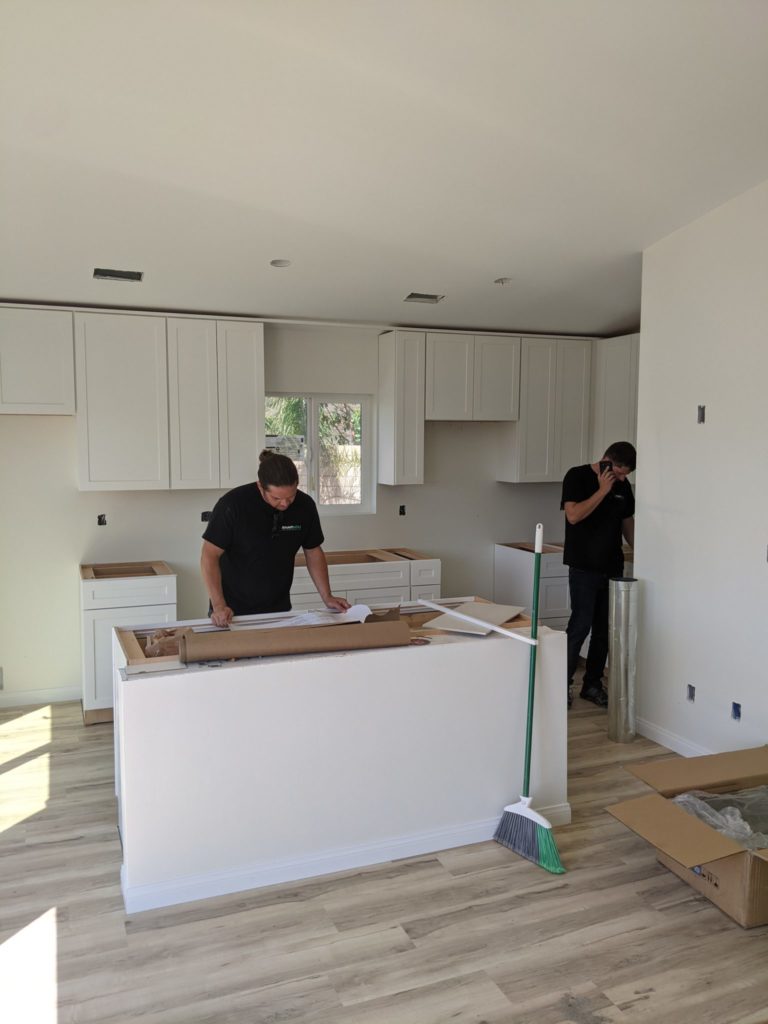
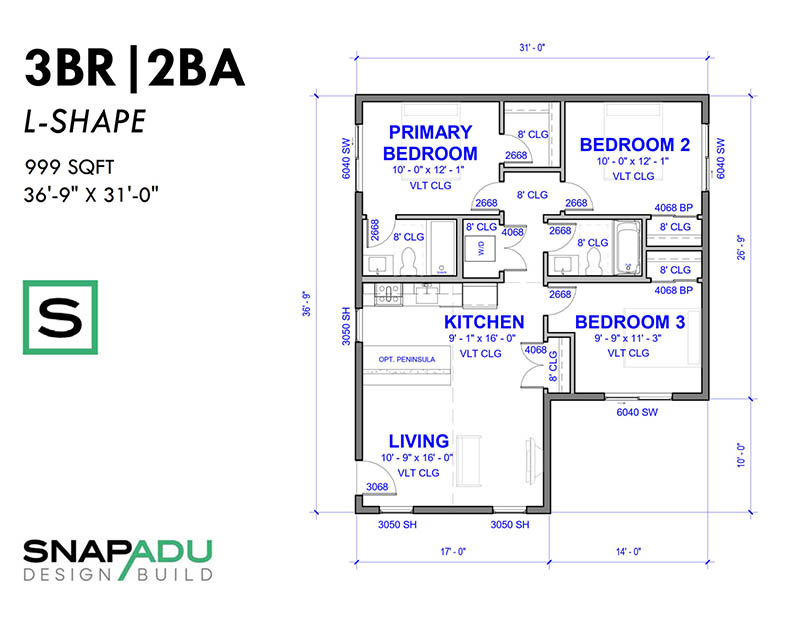
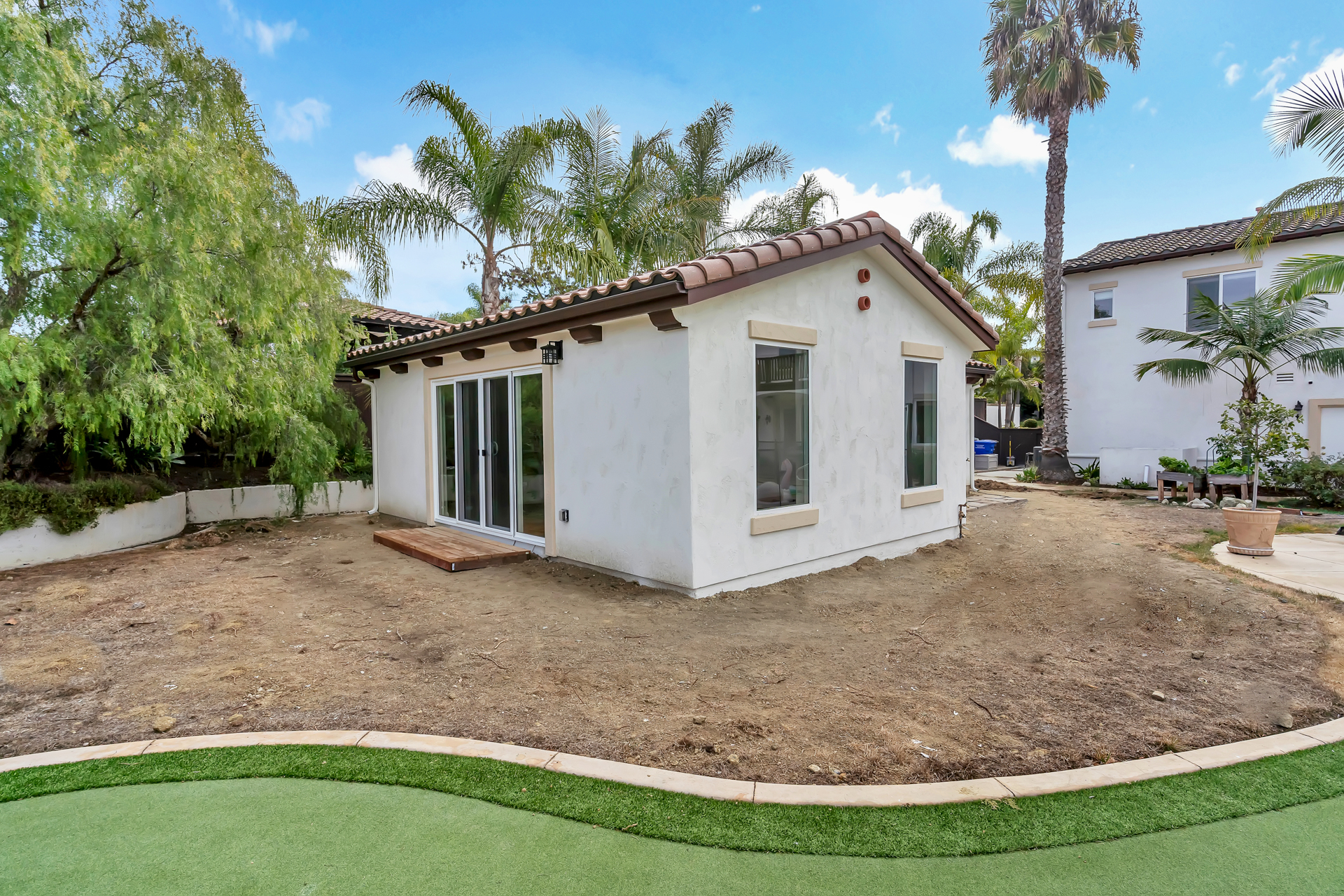
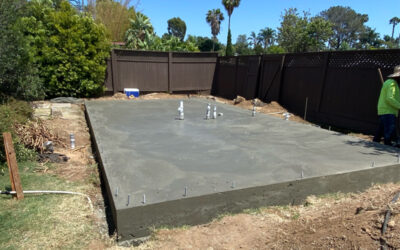
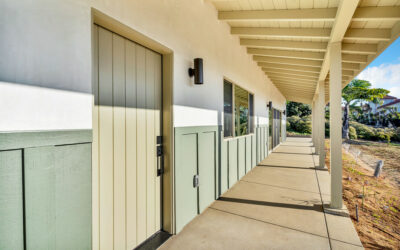

0 Comments